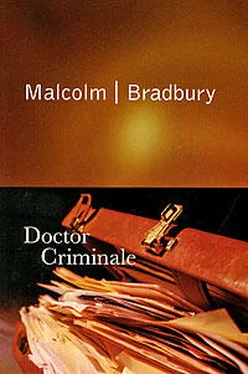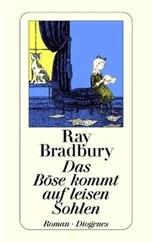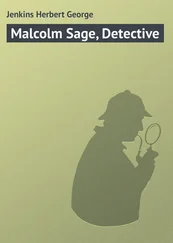Malcolm Bradbury - Doctor Criminale
Здесь есть возможность читать онлайн «Malcolm Bradbury - Doctor Criminale» весь текст электронной книги совершенно бесплатно (целиком полную версию без сокращений). В некоторых случаях можно слушать аудио, скачать через торрент в формате fb2 и присутствует краткое содержание. Город: London, Год выпуска: 2000, ISBN: 2000, Издательство: Picador, Жанр: Современная проза, на английском языке. Описание произведения, (предисловие) а так же отзывы посетителей доступны на портале библиотеки ЛибКат.
- Название:Doctor Criminale
- Автор:
- Издательство:Picador
- Жанр:
- Год:2000
- Город:London
- ISBN:978-0330390347
- Рейтинг книги:5 / 5. Голосов: 1
-
Избранное:Добавить в избранное
- Отзывы:
-
Ваша оценка:
- 100
- 1
- 2
- 3
- 4
- 5
Doctor Criminale: краткое содержание, описание и аннотация
Предлагаем к чтению аннотацию, описание, краткое содержание или предисловие (зависит от того, что написал сам автор книги «Doctor Criminale»). Если вы не нашли необходимую информацию о книге — напишите в комментариях, мы постараемся отыскать её.
Doctor Criminale — читать онлайн бесплатно полную книгу (весь текст) целиком
Ниже представлен текст книги, разбитый по страницам. Система сохранения места последней прочитанной страницы, позволяет с удобством читать онлайн бесплатно книгу «Doctor Criminale», без необходимости каждый раз заново искать на чём Вы остановились. Поставьте закладку, и сможете в любой момент перейти на страницу, на которой закончили чтение.
Интервал:
Закладка:
I’m older now. With the wisdom of hindsight I see I may have spoken a bit too freely, been a smidgen extreme, a mite extravagant, even laid it on a little. I was talking about books I had at best skim-read, at worst digested simply by reading the blurb (to tell the truth, I found time to read some of them properly later, and they pleasantly surprised me). No doubt, as their authors claimed, they were born of the deep wisdom of a full human experience from the red-hot fires of the imagination. I now know it is often the young who are most nostalgic for the past they’ve yet to acquire, and have a lively instinct for faking history. I have discovered through effort (how much effort you’ll see later, if you just read on) that even the lives of the old can be complicated, their response to existence wise, that there are things about history we ought to remember. But imagine the set-up, try to share it. I was still an innocent; here in front of me was the television camera. And the problem with that is when the camera looks at you you think you are speaking to it , or maybe even to the pretty girl staring at you round the side of it, rather than the wider world beyond. I belong to the age of instant reaction – thinking, eating, emoting on the hoof. It was my on-the-spot opinion TV asked for. It was my on-the-spot opinion TV got.
I chattered. Words like sentimental, parochial, traditional freely passed my lips. After a few sentences the henna-haired presenter cut me, rather curtly, I thought, off, the cameraman checked the tape, the girl in the low-cut dress said ‘Brilliant’ (later on I discovered she said that all the time, about all matters, good or bad). Someone else rolled up with the next victim, who was John Mortimer, or if not he someone of his size, mien, and standing; and I, stupidly glad to have had my moment of media fame, my time in filmic eternity, went on my way to the vast, vaulted reception hall, decked out with fine oil portraits of great London worthies, to gather my just reward in the form of a life-enhancing drink. Here frilly-aproned waitresses stood waiting, as if glad to see me, on the wide stone steps, holding out silver trays laden with the condiments that sauce these great occasions: champagne or its near relative, orange juice, bottled water, bright gins-and-tonics into which the ice-cap was Antarctically melting. I gathered up two glasses of champagne, one for myself and the other for some putative companion; after all I belong to that brilliant new generation who thinks that at parties you never know your luck. I would be among writers, who notoriously consider a drinks gathering a prelude to general adultery. I pushed my way into the penguin-suited room.
It took a while to realize I had seriously misjudged the whole occasion. The fact is, at the Booker, the glitterati are not the literati at all. The first person I spoke to said he was Neil Kinnock, and I realized later he very probably was. Perhaps that is why my fascinating chatter about experimental fiction in the post-postmodern world did not go down very well. Someone else said he was Richard Rogers, whom I probably should have talked to about Post-Postmodernism, not about filmstars who rode horses. Someone else claimed to be the Governor of the Bank of England; someone else explained that he farmed some of or possibly the whole of the West Country. There were more bankers, businessmen, politicians, ambassadors from various countries where they read books. Altogether we made a strange combination, the great and the good in their black and their white, their orders and decorations hanging bluely beneath their bow ties, I in my green shellsuit with the Reebok trainers. I was with the chattering classes, who chatted the chat the chattering classes like to chatter when they are just chatting: of the ERM of the EMU, of hard ECUs and soft landings, of holidays and health farms, of their charming villas in the Dordogne and their undying hatred of the French.
At last, impatient, I stopped a passing penguin suit – he turned out to be John Major, though he probably did not know that himself then – and asked to be directed toward some writers. After a moment of thought, he smiled affably and pointed me in the direction of the far, portrait-hung wall. He proved (on this question certainly) entirely in the right. Up against the wall, in a terrified herd, I found the shortlisted six, the authors whose books were being weighed against each other for the prize. They were huddled together, drinking glasses of orange-juice’ and surrounded by sad-looking literary agents and publishers’ publicity girls, every one of them called Fiona. As I expected, they were mostly elderly ladies, though one was a very young girl just learning the granny trade, another a male author from the Antipodes suffering from terminal jet-lag. Some of the ladies had permed their hair, though most preferred to leave theirs in a state of gay disorder. Some carried plastic shopping bags, one was already weeping a little, another complaining she had taken more orange-juice than was good for her. All appeared bewildered, as if no one had properly explained to them why, just for this once, they had been let out. The only way they resembled writers was that all of them were sulky and spiteful, and clearly detested each other. By now the five judges, their deliberations completed, were back in the room and spreading the result among their spouses or other consorts. But, the game of the Booker being to keep the authors themselves in suspense as long as possible, to raise the drama of the event, the writers themselves had no idea of the outcome, and so didn’t know which of their group to detest the most.
I summoned up my charm (maybe I should say that from time to time I do have some) and approached the Fionas, saying I wanted to interview their charges on the influence of Dirty Realism on their work. Speaking as one Fiona, they refused point-blank, explaining no interviews were allowed until the result had been announced. Then the winner would be presented to the press, and their remaining candidates abandoned, presumably, to their various miserable fates. Even now I’m not sure whether the Fionas told me the truth, or had correctly judged that an article by me was unlikely to be an act of pure homage. In fact I’d already intended to show that between the Booker writers and me lay a wide culture gap. They were writers who called the novel their ‘medium’; and the women in them still had just one breast; I came from the world of the media – how true, how true, that would prove – and the women in my life made no bones or flesh about having two. They were stuck in the age of the puritan singular, I came from the age of the permissive plural. Yes, thinking back, those Fionas were probably just good at their jobs.
Читать дальшеИнтервал:
Закладка:
Похожие книги на «Doctor Criminale»
Представляем Вашему вниманию похожие книги на «Doctor Criminale» списком для выбора. Мы отобрали схожую по названию и смыслу литературу в надежде предоставить читателям больше вариантов отыскать новые, интересные, ещё непрочитанные произведения.
Обсуждение, отзывы о книге «Doctor Criminale» и просто собственные мнения читателей. Оставьте ваши комментарии, напишите, что Вы думаете о произведении, его смысле или главных героях. Укажите что конкретно понравилось, а что нет, и почему Вы так считаете.











